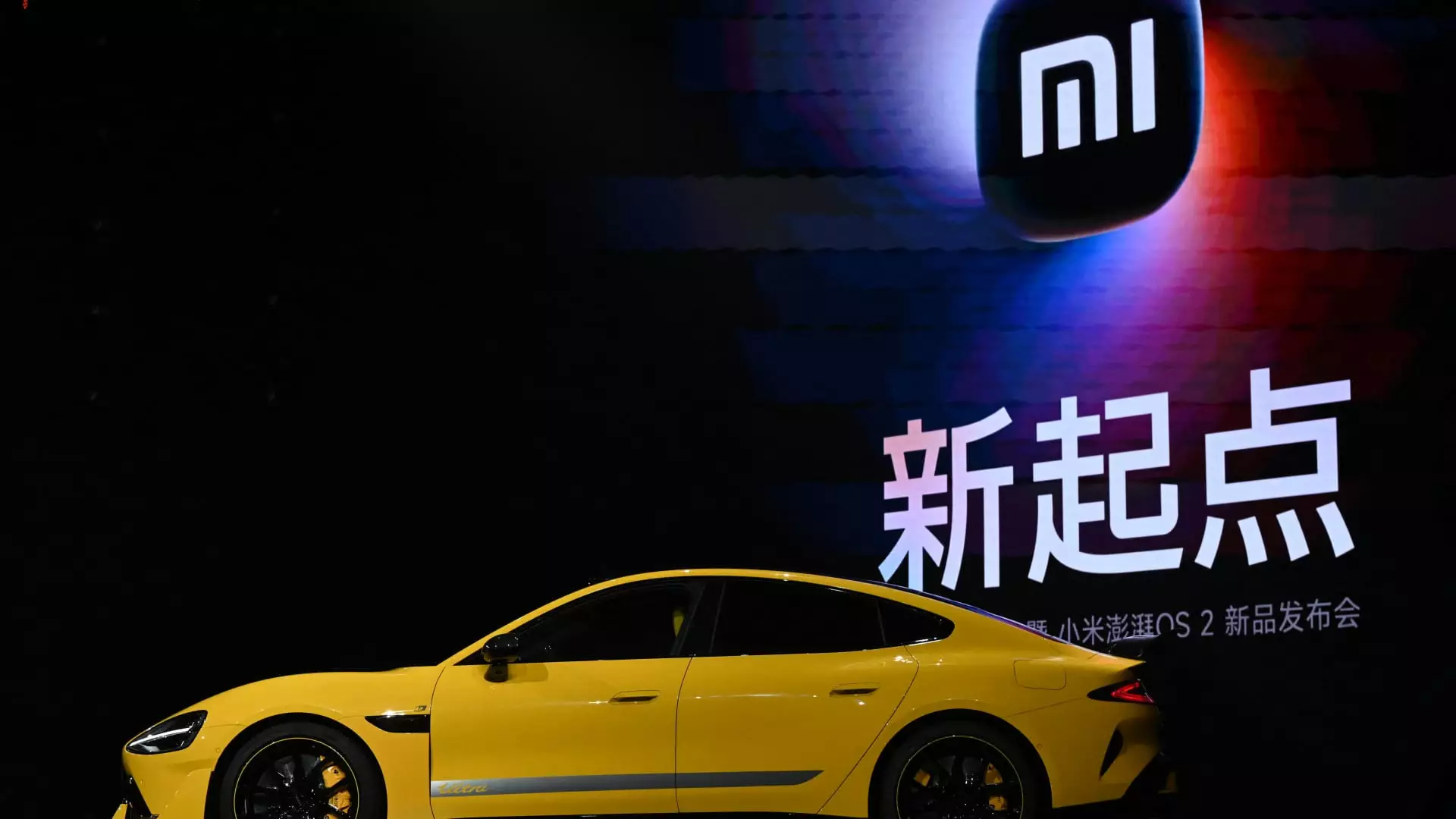In a notable push into the electric vehicle (EV) sector, Xiaomi has showcased its ambitious production capabilities by delivering over 20,000 units of the SU7 model in October alone. This figure not only highlights the company’s determination to carve out a space in a highly competitive market but also underlines the strategic moves it’s employed since unveiling its automotive plans in 2021. With a target of delivering a hundred thousand SU7 vehicles by the end of November, Xiaomi is clearly positioning itself as a formidable player in the world’s largest EV market.
Xiaomi entered the automotive scene with its SU7 model, launching its basic version in late March at a price significantly lower than Tesla’s Model 3, which is a hallmark of its aggressive strategy. The company set the price around $4,000 less than Tesla’s most affordable offering available in China at that time. In response, Tesla adjusted its pricing strategy, slashing its Model 3’s price by approximately $2,000, reflecting an intense rivalry that intensifies the market dynamics.
The trajectory of Xiaomi’s production is impressive, especially in contrast to its competitors. Xpeng and Nio took nearly six years to achieve the milestone of 100,000 electric vehicles produced, whereas Tesla managed to reach this figure in twelve years. In stark contrast, Xiaomi’s production capabilities suggest that it could potentially achieve this target much more rapidly. Such efficiency is particularly noteworthy, considering the dizzying pace at which the company is ramping up operations. To date, with over 75,000 SU7 deliveries, Xiaomi’s performance reflects its robust supply chain and production prowess.
In a landscape where other EV brands are seen struggling, Xiaomi’s performance stands out. Xpeng achieved a record delivery of over 20,000 vehicles in September, largely buoyed by the introduction of its low-cost brand, Mona. Meanwhile, Nio has faced challenges keeping its monthly deliveries above the 20,000 mark. Geely’s Zeekr has also notably made a mark, claiming to have produced over 100,000 vehicles in just one and a half years, highlighting the aggressive competition facing Xiaomi.
These contrasting outcomes amongst competitors hint at a pivotal period for the electric vehicle industry in China. Xiaomi’s strong sales numbers reflect not just an emergent popularity but also a unique selling proposition driven by affordability and innovative features. As the competition grows more fierce, the companies that strategize effectively stand to gain significantly.
Xiaomi has not limited itself to the SU7 alone but has also introduced a high-performance version of the vehicle, called the SU7 Ultra, with pre-orders commencing at 814,900 yuan (approximately $114,304). This model particularly resonated with the market, garnishing over 3,600 pre-orders in just ten minutes, indicating a potent demand for premium EV offerings. Analysts project that these new models will further bolster Xiaomi’s market presence and enhance its sales figures.
Citi analysts have dramatically increased their forecast for Xiaomi, expecting around 250,000 vehicle deliveries in the forthcoming year, up from their previous estimate of 238,000. This increase is not without merit; the company’s innovative strategies, such as the SU7 Ultra’s performance at the Nurburgring track, provide substantial marketing leverage to position its product as a high-quality offering within the competitive landscape.
Despite the current focus on the domestic market, where Xiaomi has established itself as a solid contender, the company acknowledges the challenges that lie ahead for international expansion. Earlier statements suggested it may take two to three years before they venture into overseas markets. This cautious approach speaks to the complexities of entering established markets where competitors have already solidified their presence.
Xiaomi’s rapid ascent in the electric vehicle sector is indicative of not just an expansion of its product line but an intentional strategy to innovate and adapt in a tumultuous market. Their commitment to producing quality vehicles at competitive prices, coupled with an understanding of market dynamics, places them in a favorable position to continue capturing consumer interest. As the electric vehicle narrative unfolds, Xiaomi appears ready to play a pivotal role, supported by a robust manufacturing strategy and an eye on future global aspirations.

